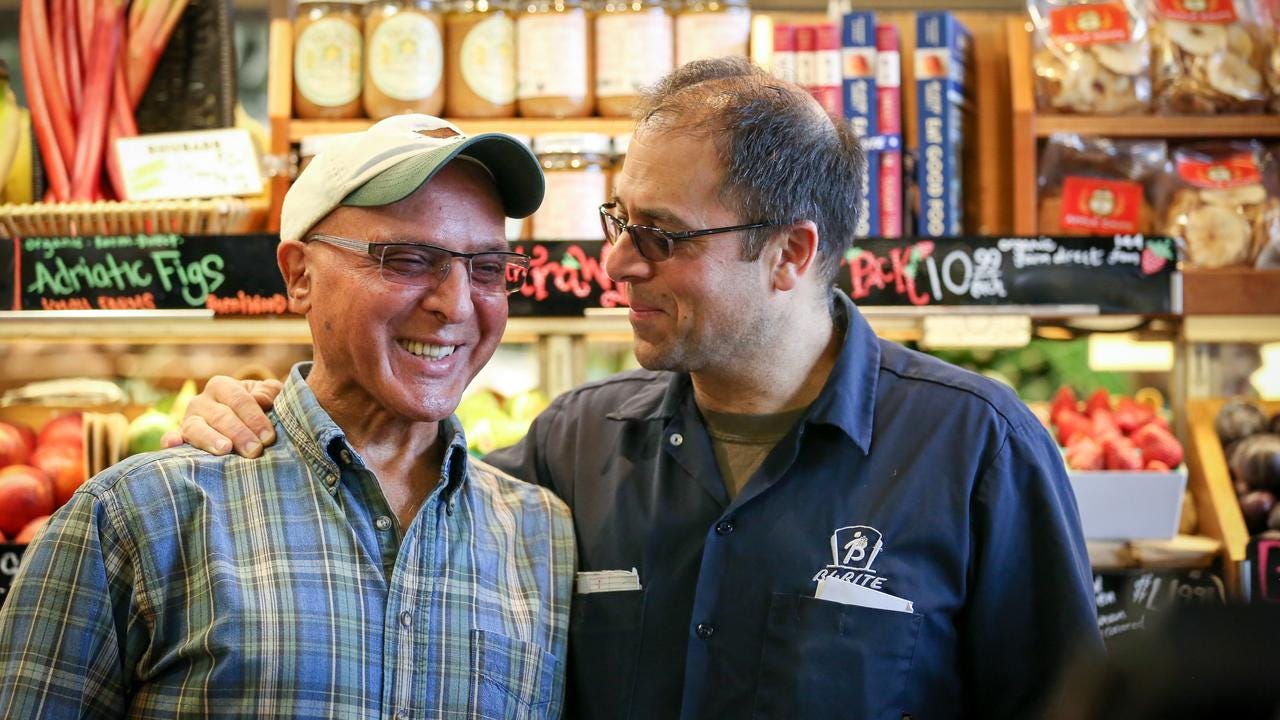The Father-Son Feud that Built an Empire of Food
For decades, a son’s wayward wanderings clashed with his father’s vision for the family business, but when they finally see eye to eye, one of San Francisco’s great culinary institutions is born.

“Before, it was only one hump. I make it three humps, and I make it bigger, so you can sit inside and you see the fruit,” Ned Mogannam beams, pointing at a row of kiwi trees. The leaves of each tree seamlessly intertwine with those of the next, five treetops forming three waves of leaves.
Ned heads into this green canopy. It’s too early in the season for kiwis, but even without the fruit, it’s striking and enveloping inside. “Yes,” Ned smiles. “Art.” His wife Mariette notes the flowers overhead, and their pointing quickly gives way to fervent chatting and the snapping of twigs with the kind of intuitive urgency most of us might swat flies away from our face with.
Days begin early here at what they call Mogannam Ranch, an acre and a quarter of land in Placerville, California’s Apple Hill area. The ranch — an orchard, really — is a lovely picture of efficiency, with blueberries, apples, pears, persimmons, peaches, cherries, nectarines, almonds, figs, grapes and kiwis all growing side by s…
Keep reading with a 7-day free trial
Subscribe to Narratively to keep reading this post and get 7 days of free access to the full post archives.


